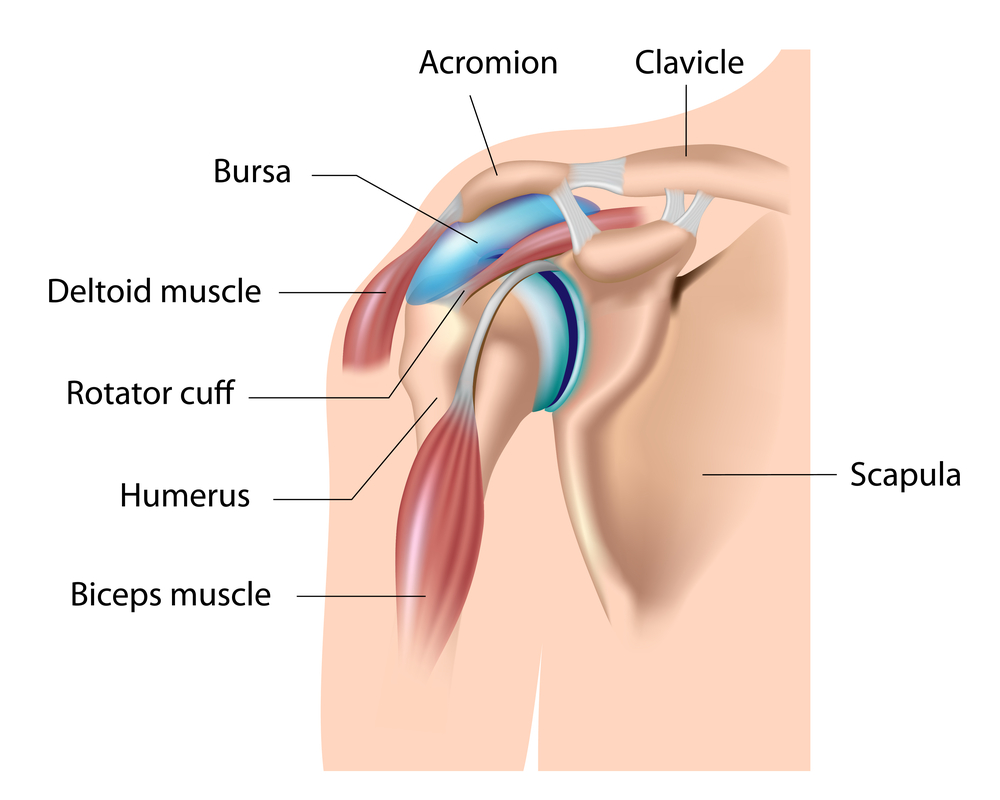Shoulder pain can present itself in many ways. You can experience numbness, along with dull, achy, tingling, electrifying sensations that radiate into your shoulders (left, right, or both) and sometimes your scapula. You may also have problems lifting or raising your arms above your head. You may be a side sleeper and have shoulder pain every morning. You may have injured your shoulder throwing a ball or trying to prevent yourself from falling. Your shoulders may ache before and during a rainstorm, or when there’s colder weather. To have a better understanding of what may be the root cause of your shoulder pain, please follow-up with your primary care physician for an X-ray, an MRI, or CT scan.
Pain that is dull, achy, tingling, electrifying and travels from the neck and into the shoulder(s) and scapula may be the result of degenerative disc disease (DDD), bulging discs, and neural foraminal narrowing. On an X-ray and an MRI/CT these abnormalities may be indicated in C4-5 and C5-6. The treatment plan may include a referral to a pain management specialist for possible cervical steroid epidurals (CESIs), Gabapentin, or Lyrica for neuropathic pain. Amitriptyline or Cymbalta may be used if Gabapentin and Lyrica are not effective; however, this medication is also used to treat depression, which can be a result of chronic pain.

If you’re having shoulder pain every morning after waking up, achy shoulders before and during a rainstorm or cold weather, then there is a possibility that you have arthritis. Again, the results will be indicated on an X-ray and an MRI/CT report. Depending on the severity of the pain, the best treatment plan includes NSAIDS (Tylenol for Arthritis, Advil, Ibuprofen, Aleve, or Naproxen), moist heat, and movement. There is no cure for arthritis. We will all have it at some point in our lives. My best advice is to get out of bed each morning slowly, take a hot shower to loosen your joints for instant relief, take your pain medication as needed, but most importantly, you must stay physically active. Deciding to stay immobile and inactive will only make your pain worse.
If you’re having difficulty elevating your arms above your head, difficulty sleeping on your side, either injured your shoulder while playing a sport or trying to prevent yourself from falling, then you may have torn your rotator cuff. As always, if you’re experiencing any of these symptoms, please contact your primary care physician for an X-Ray and an MRI/CT. Depending on the results and the level of your pain, a referral to an orthopedic surgeon may be necessary.
References:
Alila Medical Media. (2019). Shoulder bursa, bursitis. [Illustration].
George, S., Athwal, G. S., & Widerman, B. (2018). Shoulder Pain and Common Shoulder Problems. Orthoinfo. Retrieved from https://orthoinfo.aaos.org/en/diseases–conditions/shoulder-pain-and-common-shoulder-problems/
